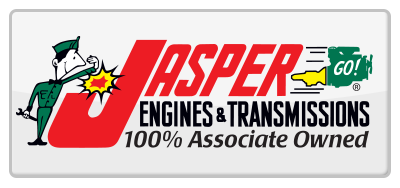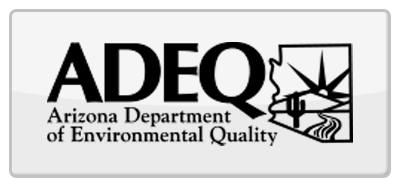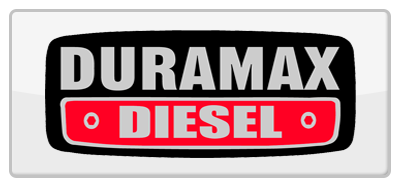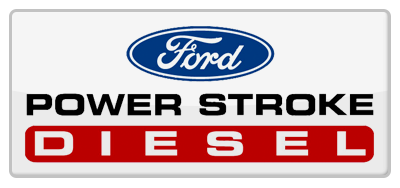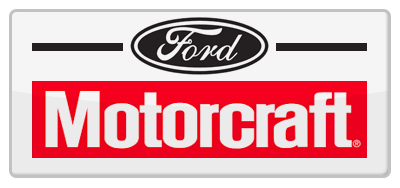
Car repair in Mesa can be avoided by keeping your car well-maintained here at Mercie J Auto Care . Many drivers make the unfortunate mistake of not performing routine maintenance on their cars, or they wait until a minor issue has progressed to an urgent problem before bringing their car to a repair shop.
Proper vehicle maintenance comes with several advantages, including:
- Improved safety – By performing routine and scheduled maintenance, you keep your car running in tip-top shape. This reduces your chances of getting into an accident due to faulty parts. For example, if your brakes are squeaking and you ignore the problem, brake failure can wind up causing a severe accident. A car owner who has their brakes checked regularly can address this problem early on and prevent a devastating accident.
- Money savings – Although maintenance services cost more up front, they save you money in the long run. Minor issues can be addressed before they become costly repairs. Proper maintenance will also prolong the life of your car’s parts and vital components, minimizing part replacements and repairs.
- Damage prevention – By having routine maintenance performed on your car, technicians can spot problems early on before they become costly and severe. This also means that you are less likely to have a breakdown at an inconvenient time.
At Mercie J Auto Care , we are dedicated to helping our customers keep their cars running in the best condition possible. Below are listed just a few of the many services our ASE certified technicians are qualified to perform:
Battery and Ignition
- Alternator: The alternator is an automotive charging system that generates power for all the electrical components of a vehicle. Your car won’t start if your alternator goes bad. Dim lights, weak or dead battery, weird noises, and smells are a few signs of a bad alternator.
- Battery: The battery works with the alternator to supply electric energy to your vehicle. Once you start your car, the alternator supplies the power needed to start driving. If you’re having issues with your cars electronic system or you have a slow engine crank upon turning the key in the ignition, your battery could be going bad.
- Spark plugs: Spark plugs emit tiny “sparks” of electricity needed to start your car. The health of your spark plugs is linked to the performance of your engine. When your spark plugs are going bad your engine will idle roughly and your average MPG will plummet.
- Distributor cap: The distributor cap is part of your vehicles ignition system. It passes voltage from the ignition coils to an engine’s cylinders to power it. If you experience stalling or backfiring while driving it could mean you need a new distributor cap.
- Solenoid and starting motor: The Solenoid receives a large electric current from the car battery and a smaller electric current from the ignition switch to get your car started. The easiest way to tell your solenoid is going bad is when you turn the key in the ignition. If it doesn’t make any noise, you need a new solenoid.
- Ignition wires, coil, and modules: These parts of an ignition system are responsible for the spark that ignites the air/fuel mixture in the combustion chambers.
Air Conditioning and Engine Cooling
- Radiator: The radiator keeps your engine cool and your vehicle from overheating. If you’re leaking coolant or your vehicle is overheating, you may need to get your radiator replaced.
- Thermostat: The thermostat sits between the engine and the radiator to block the flow of coolant until the engine has warmed up. If the temperature is fluctuating and changing erratically, your thermostat needs to be checked out.
- Compressor clutch: If the compressor clutch doesn’t engage, your A/C won’t be able to blow cool air into the car. If you experience warming internal temperatures or loud noises, you may need a new compressor clutch.
- Water pump: The water pump prevents overheating by circulating coolant between the radiator and the engine. If you experience an overheating engine or steam coming from the radiator come get your water pump checked out as soon as possible. A malfunctioning water pump could result in your engine going bad.
- Compressor: The compressor is responsible for pumping refrigerant through the AC system and cooling down your car. If the interior of your car feels warmer or you hear loud noises when your compressor is running, it’s time to pay The Auto Repair Place a visit.
- Accumulator: This is the metal canister that is the filter for your AC system. You’ll know your accumulator is going bad if there is a moldy smell or a rattling noise when your AC is running.
- Condenser: A faulty condenser can prevent the AC system from blowing out cold air. This part needs to be replaced if it’s blowing significantly less cool air from the vents.
- Engine cooling fan: The engine cooling fan is part of the cooling system and helps dissipate excess heat. If your engine fans don’t come on or your car overheats, they may need to be replaced.
- Blower motor: This component pushes air through the vents of your cars air conditioning system. When your car’s heater stops working or only works on certain settings, you’ll need to replace the blower motor.
- Heater core: The heater core extracts heat from the coolant and pushes warm air into your car. A bad heater core can be identified easily if it’s burning through coolant faster than usual or you smell something sweet and sticky. The Sweet, sticky smell is from your coolant leaking in and outside of your car.
- Evaporator: The evaporator keeps tabs on the temperature of the AC system.
- Expansion valve: The expansion valve works with the evaporator to regulate the flow of refrigerant through the vehicle’s AC system. A bad expansion valve is evidenced by frost coming from the vents or the AC compressor constantly running.
Engine and Fuel Emissions
- EGR (Exhaust Gas Recirculation) valve: The EGR lowers the exhaust emissions from the tailpipe of the car. A rough idle, stalling, and increase in fuel consumption are telltale signs you need a new EGR valve.
- Modular fuel pump: This part releases the power needed to operate the fuel pump. Common signs of a failing modular fuel pump include a hard start, inability to start the car and engine performance issues.
- ECM (Engine Control Module): The ECM ensures optimal engine performance by reading the valves from sensors within the engine bay. If your check engine light comes on or your car isn’t starting, your ECM is going bad.
- Fuel injector: The fuel injector transfers fuel into the engine and is responsible for power, fuel efficiency, emission performance and more! If the inside of your car starts to smell like gas, your fuel injectors could be going bad.
- Engine sensors: Engine sensors monitor all the important functions of an engine such as emission control, fuel efficiency, transmission shifting, cruise control and more! Your check engine light will go on or you’ll get bad gas mileage when your sensors begin to go bad.
- PCV (Positive Crankcase Ventilation): a malfunctioning crankcase ventilation can result in more air than fuel resulting in an engine misfire. A faulty PCV will result in excessive oil consumption or your oil leaking.
- Muffler: When your muffler is going bad it will make louder noises, emit weird smells and result in lower MPG.
- Tailpipe: The louder the noise from the tailpipe the more likely you’ll have to get it replaced. Engine performance also suffers.
- Resonator: The exhaust resonator is designed to create much smoother driving conditions and reduce noise from the exhaust system. It also helps with engine performance.
- Catalytic Converter: The catalytic converter uses a chemical reaction to convert gasses into something less harmful to yourself and the environment. When your catalytic converter starts going bad your vehicle may not start and if it does you’ll most likely fail an emissions test. It also negatively affects acceleration and your fuel efficiency will suddenly drop.
Powertrain and Driveline
- Engine: Your engine is the heart of your vehicle and all the parts on this page work to keep it moving. If your check engine light goes on, you start to lose power and your gas mileage plummets, it’s time to get your engine checked out. Regular engine maintenance can save you thousands in repair bills.
- CV Joint and/or boot: You’ll know your CV joints are going bad if you hear loud clicking noises or there is excessive vibration while you’re driving.
- Transmission: A transmission shifts the gears in your car and is one of the most expensive fixes on your vehicle. Like regular engine maintenance, regular transmission maintenance can save you thousands in repair costs. If your vehicle shifts roughly or it starts to slip, your transmission needs immediate service or repair.
- Wheel bearing: The wheel bearing allows your tire and wheel assemblies to spin as fast as possible with the least amount of friction. You’ll know your wheel bearings are going bad when you hear knocking, humming, snapping, clicking or popping while driving.
- Flywheel: The signs that you need a new flywheel are gear slippage, a burnt smell, and clutch vibrations.
- Differential: Your differential is responsible for splitting your engine torque. A bad differential is evidenced by vibrations and noises such as clunking, howling or whining.
- Clutch: Your clutch connects your engine to your wheels. If your clutch is going bad you’ll have trouble shifting accompanied by a burning smell.
Suspension
- Struts: The struts absorbs all the bumps you experience while driving. You’ll know your struts are going bad with noticeable tire shaking or vibration when hitting a bump.
- Shocks: Shocks keep your car from bouncing up and down. You can test your shocks out by pushing down on the corner of your vehicle. If it starts to bounce when you let go, your shocks may need to be replaced.
- Strut mount: The strut mount insulates vibrations from the vehicle. If there is oil on the strut or noise from one area of your car your struts may need to be changed.
- Coil springs: Coil springs don’t exactly wear out but they will eventually begin to sag and will need maintenance.
- Ball joint: The ball joint connects the control arm to the steering knuckles. Common signs of failing ball joints are clunking noises and vibration.
- Control arm: The control arm connects the wheel hub and steering to the chassis. Common symptoms of a bad control arm are wheel vibration, a wandering steering wheel, and clunking noises.
- Bushing: A bad bushing is signaled by a sluggish response to your vehicle’s handling as well as rattling or squeaking noises from under the car.
Belts, Filters, and Hoses
- Radiator hose: The radiator hose keeps coolant flowing through the engine to keep it cool. If your coolant levels are low or leaking or your engine is overheating, your radiator hose may be going bad.
- Engine, fuel and oil filters: Filter help remove excess contaminants from your oil to keep your engine clean. Bad filters result in lower MPG and sluggishness while driving.
- V-ribbed serpentine belt: V-Belts run on the outside of the engine and power the alternator and AC compressor. If your power steering goes out or your AC stops working, your V-Belt needs to be replaced.
- Air conditioning hose: An air conditioning hosed is designed to allow refrigerant to flow through the AC system. If your AC stops blowing cool air, you’ll know it needs to be replaced.
- Timing belt: The engine timing belt syncs the rotation of the crankshaft with the camshaft so the engine’s valves open and close. When your timing belt goes bad, your engine will go bad! It’s best to keep tabs on when you changed your timing belt and get it replaced before it’s too late!
- Heater hose: The heater hose is made to transfer coolant from the engine to the heater core. If your coolant is leaking or your engine is overheating, you need a new heater hose.
Steering
- Idler Arm: If your vehicle is floating or wandering while driving, your idler arm could be going bad.
- Pitman Arm: Poor Steering is a good indication that your Pitman arm is going bad. Floating and wandering while driving is also an indication you need a new Pitman Arm.
- Tie-rod end: When your tie rod is going bad, your front alignment is off and you’ll have loose steering.
- Rack-and-pinion: Loose steering and persistent knocking are signs of a bad rack and pinion.
- Power steering: If your steering wheel feels off or you hear a squealing noise, your power steering may be going bad.
If you have any issues with your car, truck or SUV stop by Mercie J Auto Care here in Mesa and have our mechanics take a look. We want to ensure you get where you are headed safely and avoid high repair costs.
Tags: a/c, refrigerant, auto a/c, spark plugs, auto battery, air conditioning, car thermostat, Mercie J, Mesa AZ, Mesa, battery ignition , distributor cap

